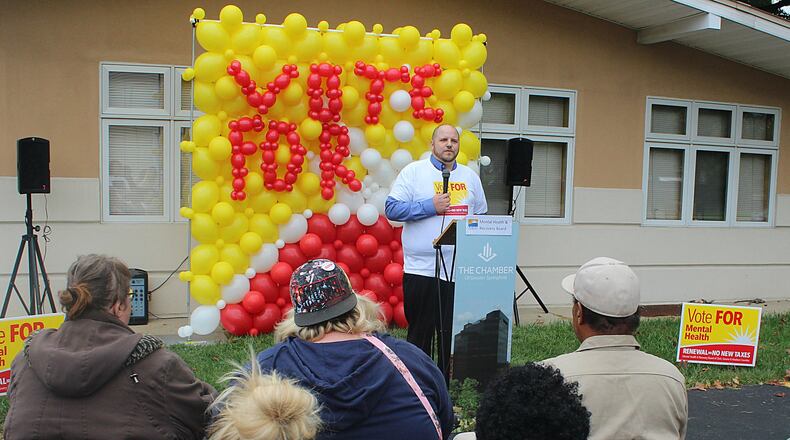The board’s Recovery Rally and Kickoff in Springfield launched the levy campaign Monday.
“In honor of World Suicide Prevention Day and September National Recovery Month, we thought it was an ideal day to celebrate stories of prevention and recovery for people with mental illness and addiction and also to kick off the levy campaign for the Clark County Mental Health Levy,” said Greta Mayer, CEO of Mental Health and Recovery Board of Clark, Greene and Madison Counties.
TRENDING: Local hospitals spending $100M+ on new buildings: Here’s why
The 10-year, 1.0-mill renewal levy would generate about close to $1.9 million in tax revenue each year and the levy would cost the owner of a $100,000 home $35 annually.
Mayer said the return on voters’ investment is ”enormous when you think it’s about 10,000 people annually who are served and then you look at families that are impacted of those who are served. Almost everyone in our community will benefit from this.”
The levy represents 25 percent of Clark County mental health and addiction services. Money from the levy is filtered into 11 agencies that deliver clinical services. Throughout all three counties, the board works with 22 mental health and rehabilitation agencies such as Families of Addicts, (FOA). FOA helps individuals find space in detox and rehabilitation centers, provides Narcan with training and has weekly meetings in counties across Ohio.
Joseph Weikert, a recovering heroin addict of two years, was able to get into a rehabilitation program without insurance because of the levy.
“If we don’t have the money, people like me who didn’t have insurance at the time won’t be able to get services, won’t have money to be able to come in. I wouldn’t be where I am at today if it weren’t for dollars from a levy like this,” said Weikert.
SIMILAR: Mental Health Board seeks “yes” vote on November ballot
Drug addiction and mental illness has wide-ranging impact, Mayer said.
“When you think about your neighbors, your family and friends, everyone knows someone who has a mental health condition or substance use problem, said Mayer.
“The levy is important because recovery is possible. It will help the people in our community, if you believe it or not, it will help you in our community, it will stop that person from breaking into your car. It will stop that one person from causing chaos,” said Weikert.
About the Author
